HOME | ABOUT US | MEDIA KIT | CONTACT US | INQUIRE
HOME | ABOUT US | MEDIA KIT | CONTACT US | INQUIRE
Some of the most prolific producers at law firms in the region are women excelling in roles long dominated by men. Here are half a dozen Rainmakers who break down barriers, bring in the big dollars and exceed client expectations with skill, toughness and determination.
You have to overcome some long odds to become a Rainmaker in the legal profession, someone who can pull into a firm a greater volume of business than they can handle on their own—someone who is, in effect, a revenue engine for the firm, requiring additional staff to support that volume of production.
Becoming a Rainmaker as a woman entails overcoming even larger odds. Why? Because the opportunities, even once you’re in the door as an associate, fall well short of a 50-50 gender balance.
The American Bar Association itself recognized the scope of the gender-balance challenge at U.S. law firms, where the number of female partners nationwide stands at just 22.7 percent as of this year. The figures are even less impressive with equity partnerships, where just 19 percent are held by women. And only 44 of the managing partners’ roles at the nation’s 200 largest firms—22 percent—are held by women.
You have to get well into the rank and file to see something approximating balance. Just shy of 46 percent of associates
are women, and summer associates top the field at 48.7 percent.
Realistically, you won’t find Rainmakers at the associate levels—in most cases, law firm leaders tend to recognize the value of anyone with that kind of production heft and move to secure their position with the firm by extending partnerships. At less than 23 percent representation in the partnership ranks, though, women must overcome an additional barrier to Rainmaker status.
Once there, the definitions of true Rainmaker can vary widely. For smaller firms, billings in the high six figures will merit rock-star status. At the most sophisticated operations in this market, though, Rainmakers like the 2019 cohort featured in this issue are well into seven figures—and with a few, halfway on their way to eight figures.
That, folks, is production. So what does it take to get there? Ask Karrie Clinkinbeard, one of this year’s honorees.
“I truly value every introduction and every relationship, and I think that’s critical,” says Clinkinbeard, who also serves as managing partner for both of Armstrong Teasdale’s offices in the Kansas City region. “I invest in my clients’ business and consider myself a part of their team, built on a foundation of trust, responsiveness and excellent client service. The nature of my business often involves catastrophic incidents, so being able to respond quickly is of utmost importance. I work to provide immediate response for my clients and offer added value by connecting them with other skilled experts in the field.”
Just as important, other Rainmakers say, is the ability to assemble, motivate and reward a team that can deliver the same level of service to clients as the Rainmaker herself.
“I let them know how serious I take this, how important this is to me, and to my client, and work with them, read every document they produce, ever document that’s sent to us, sit down and go over it with them and explain not just why it’s important, but why I expect them to get it,” says Stinson’s Kenda Tomes. “You have to be patient and willing to work with them. I ask them questions, but I don’t let anything go out the door that I haven’t blessed.
“Eventually,” Tomes says, “they will get it and they will become able to do it themselves. Not everyone works out or can do it. The ones that do, I reward them. Eventually, I will share the origination credit to incent them as well. And you have to be fun to work with—not just an ogre.”
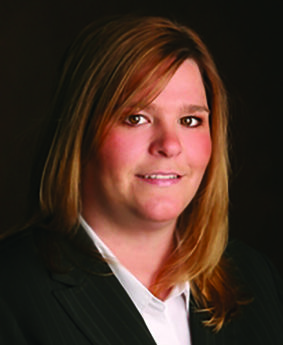 NIKKI CANNEZZARO
NIKKI CANNEZZARO
FRANKE SCHULTZ & MULLEN
Much like Arthur Fleck in “Joker,” Nikki Cannezzaro envisioned a career in comedy, but the laughs were hard to come by. “Eventually, I realized I am the only one that found myself funny,” she says, wryly. “I decided comedy was not a good career path.” Ditto becoming a detective. But the latter had an interesting corollary: law. So she knew not long after she arrived at the University of Kansas that her educational path would eventually lead to law school. She finished that at UMKC’s School of Law, in part because “most of my college friends at KU were not finishing up in four years, so I knew if I wanted to get any studying done in law school, I needed
to get out of Lawrence.” And in part because the love of her young life—now her husband—had finished college and taken a job in Kansas City.
“The decision to go to law school at UMKC turned out to be a great decision for me, not only because I eventually married the guy who lured me back to KC, but because of the connections that UMKC provides to the Kansas City legal community,” she says.
It turned out to be a great decision, as well, for clients of the firm where she demonstrates her chops as Rainmaker, where she is delicately described as “a very aggressive trial and appellate lawyer.” A certified civil trial specialist by the National Board of Trial Advocacy, she has a deep history in trying jury cases over products and premise liability, fatal trucking and automobile accidents, bad-faith cases and insurance coverage litigation, among others.
She is drawn to this particular law firm by “the opportunities it could provide to get in the courtroom and actually try cases.” Coming off a clerkship in the Missouri Court of Appeals, she had ample opportunities before casting her lot with at what was then Franke & Schultz, and her instincts paid off. “I was trying a case and arguing in the appellate courts within months of starting at the firm. I believe the opportunities that Franke Schultz & Mullen provided me are unparalleled to what I would have had at any other firm.”
“Many clients,” she says, “now recognize the power of having a female trial attorney, and seek out firms that provide those opportunities to women.”
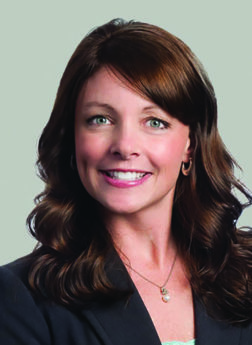 KARRIE CLINKINBEARD
KARRIE CLINKINBEARD
ARMSTRONG TEASDALE
The mark of any good Rainmaker is the ability to put out fires, but Karrie Clinkinbeard really does know something about firefighting: Her dad was one, and many a birthday celebration or holiday during her youth was spent at the fire station, where the crew became one big, extended family.
“I remember stopping by the station the day the bar exam results were released,” she says. “After checking the results on the computer together, my dad and I came out of the office to a crowd of firefighters anxiously waiting to hear if I passed.”
That’s more than just a heart-warming anecdote; in coming from a long line of firefighters, she says, “devotion to public service and giving back to the community were core values instilled in me early in life.” And that is what led this Overland Park native to a career in law, a path she charted even before leaving Shawnee Mission West High School for the University of Kansas.
“I always knew I wanted to be a lawyer,” she says, and she combined that drive with her public-safety background in her practice concentration.
Clinkinbeard serves as managing partner for the firm’s two area offices, but has her own practice concentration, focusing her other work on fire, explosion and electrocution litigation, plus toxic torts and catastrophic incidents, product liability, contract disputes, personal injury and life, health and disability matters.
Succeeding in that environment is a challenge for any woman, but for Clinkinbeard, “growing up in a family of firefighters, I felt like the field
was a natural fit for me,” she says. Still, “it’s been somewhat surprising the extra lengths I’ve had to go to in order to earn the respect of men in the field.”
But that she has done, as one of but a comparative handful of attorneys in the U.S. to receive their Certified Fire and Explosion credential from the National Association of Fire Investigators. Clinkinbeard also teaches courses across the country for the Department of Homeland Security’s National Fire Academy and local chapters of fire investigation associations.
“It’s a huge honor for something that I greatly enjoy doing, but the road has been tough,” she says. “I firmly believe that if you work hard, you can be successful in any practice area.”
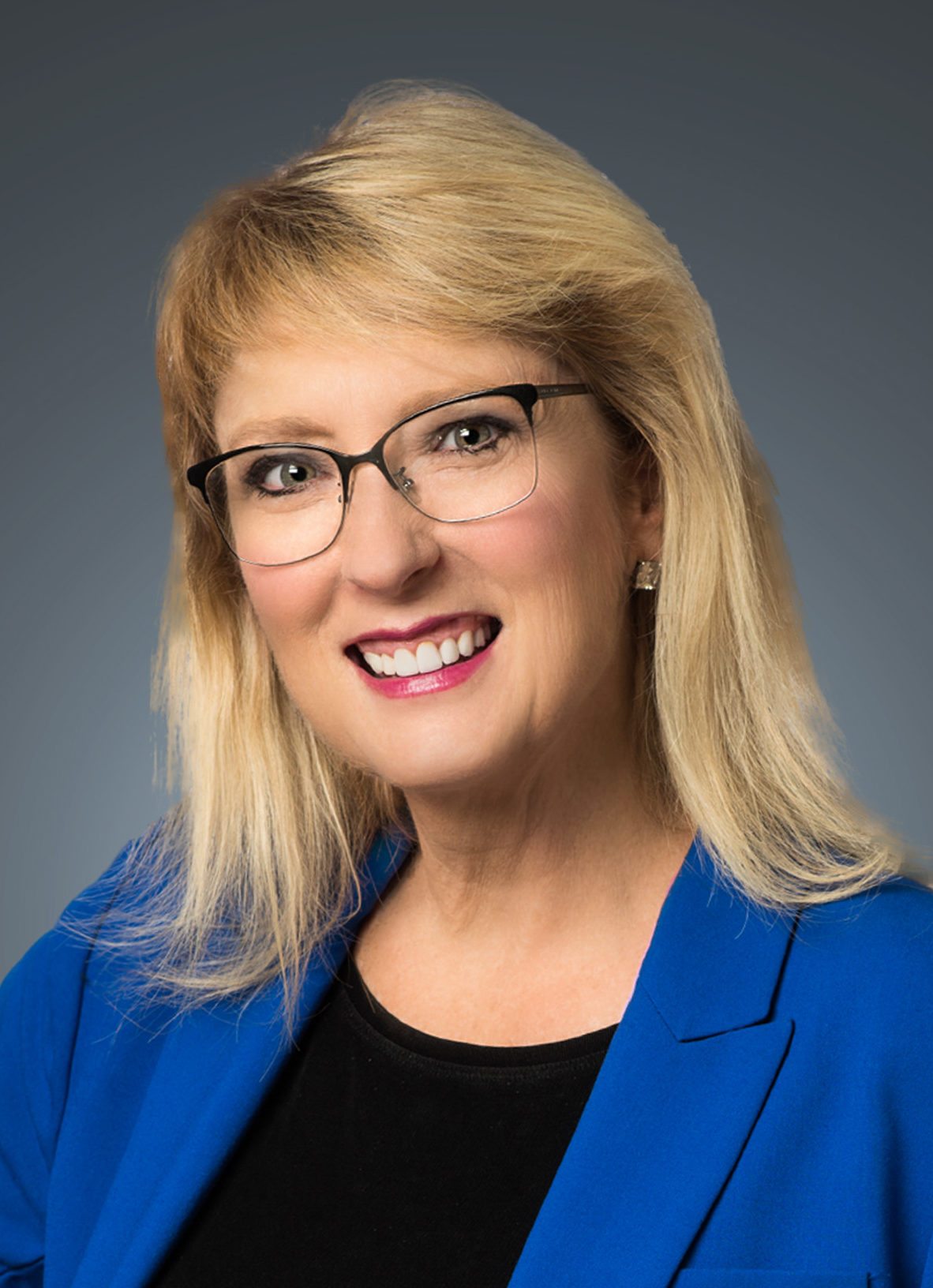 DENISE DRAKE
DENISE DRAKE
POLSINELLI
Denise Drake is the absolute personification of a Rain-maker: Someone who brings to a law practice the ability to generate far more business than they can accommodate single-handed, thereby driving employment as well as revenues. Asking a lawyer about her annual billable hours is as gauche as asking to see someone’s pay stub, but we can assure you: Drake’s impact at Polsinelli consistently generates as much as nine times her own considerable output as a nationally recognized labor and employment attorney.
For the past two years, she has led Polsinelli’s largest practice group—Employment Disputes, Litigation, and Arbitration—within the national Labor & Employment Department, for which she was recently appointed chair. In that role she leads a national team of attorneys in seven practice areas. She also sits on the firm’s compensation committee and its board of directors.
Her career in litigating employment law disputes has covered nationwide class- and collective-action cases valued at more than $500 million, including cases involving tens of thousands of non-exempt employees. The passion for helping people solve their legal challenges runs deep in this Urbandale, Iowa native, who found her voice back in high school in student senate, theater, and cheerleading. She also drew on the encouragement of a mentoring teacher and her parents, who instilled a solid work ethic. “I wanted to be a lawyer from well before I went to college,” she says, but detoured through financial services at what is now American Century Investments, where she became a registered adviser before moving into HR. Then came a master’s in organizational development before law school at KU, where she graduated first in her class—and had her first child as a third-year student. Talk about multitasking.
Labor and employment law is no picnic for any lawyer, regardless of gender, she says. “The issues in the labor and employment area may resonate more with women and are incredibly interesting,” Drake says, “but I’ve represented some of the toughest employers, at least stereotypically, for women (e.g., construction, trucking, railroad transportation) with absolutely no problems, and in fact, great success
in the relationships.”
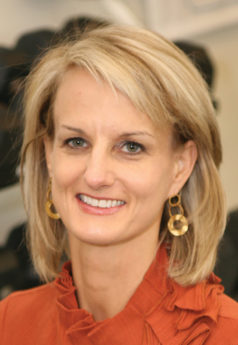 KIRSTIN SALZMAN
KIRSTIN SALZMAN
HUSCH BLACKWELL
“A good lawyer is a good lawyer, regardless of gender,” says Kirstin Salzman. You can almost hear the “but” coming,
and for good reason: despite a years long commitment to diversity in hiring, despite the nearly even numbers of women and men among law-school graduates in recent years, there are still two male lawyers for every female lawyer in the U.S. So forgive Salzman when she muses that “I do think sometimes that I have to work harder. Change takes time. I hope, and I may be naïve, that in 10 years, over half our partners are women. As time continues, and people continue to enter the legal work force in equal numbers, the upper echelon will be equal,” she says.
Until that day comes, though, she’ll keep pounding away. To this point, that work has been in business law, where she leads Husch Blackwell’s Corporate, M&A and Securities team. Her work covers transactions, strategic guidance on mergers and acquisitions, securities-law compliance, joint ventures, governance issues, private equity and venture capital investments, and other complex contractual arrangements.
Salzman is a Kansas City native who, like more than a few who grew up yearning for more, “was convinced at 23 that I was done with Kansas City and wanted to get as far away as I could, at the best school I could.” On that, she scored twice: Duke University for undergrad, then Northwestern for her law degree. Five years into her career came a realization: “Once I’d left, I really appreciated the benefits of living in a city like KC. It took me five years to get back, but I did.” That was 1998.
“I went to Northwestern with the idea that I wasn’t ever going to practice law very long; I thought it would be my entrée into the business world,” she says. Instead, she grew attached to working with business leaders to solve their complex legal problems.
Being a Rainmaker requires a team that can embrace her own commitment to client service, “challenging younger lawyers while always making them feel supported and giving them opportunities to shine,” she says. “But you don’t make them feel they are out on limb all by themselves. So it’s about rewarding and valuing hard work. Treat them as truly valuable members of the team, get them invested in your client,
exposed to your client, know your client and have the same investment in the goals and successes of your client.”
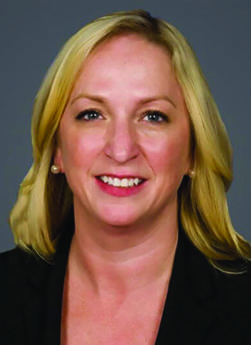 KERRI REISDORFF
KERRI REISDORFF
OGLETREE DEAKINS
Hard work? That ethic was wired in during her youth outside Lincoln, Neb. Values? She drew her life’s motto from a book that said “you should live your life in such a way that other people would enjoy meeting you.” Those two qualities are in the DNA of many a Rainmaker, but something else is key to attaining that rarefied status in law, says Kerri Reisdorff: “To be a successful originator, you have to have a sophisticated platform.”
People outside the legal profession, she says, may think that a lawyer will succeed merely by finding a firm that offers a good personal and professional fit. But to attain Rainmaking performance, the fit isn’t just about the lawyer—it’s tailoring a job conducted for the company being billed.
“It’s more important that firms are a good fit for the clients you have and those that will grow on that platform, and for potential clients,” says Reisdorff, who manages the Kansas City office for Ogletree Deakins. The key to building a solid book of business, she says, “is having something worth selling. You can sell your service and your knowledge, but clients need more than that—they need additional expertise and locations, so picking the right firm becomes extremely important.”
Not far removed from the 20th reunion of her law-school class back at the University Nebraska, Reisdorff recognizes that “a lot has changed” for women in legal fields since her graduation. Firms have relaxed a long-held grip on hiring practices that favored men, but Reisdorff says the immutable laws of success are grounded not in opportunities alone: One must take that opportunity and thrash it an unrelenting focus on client service, and that goes for women as well as men.
“I’m not going to lose a client because we were not good lawyers, but because we didn’t provide good service,” she says. “Every firm says they’re committed, but really looking at the infrastructure to get alerts out on cases that have been decided, giving them the D.C. updates and inside scoop to clients, services we provide a low or no cost—all of that is proof of being committed,” Reisdorff says.
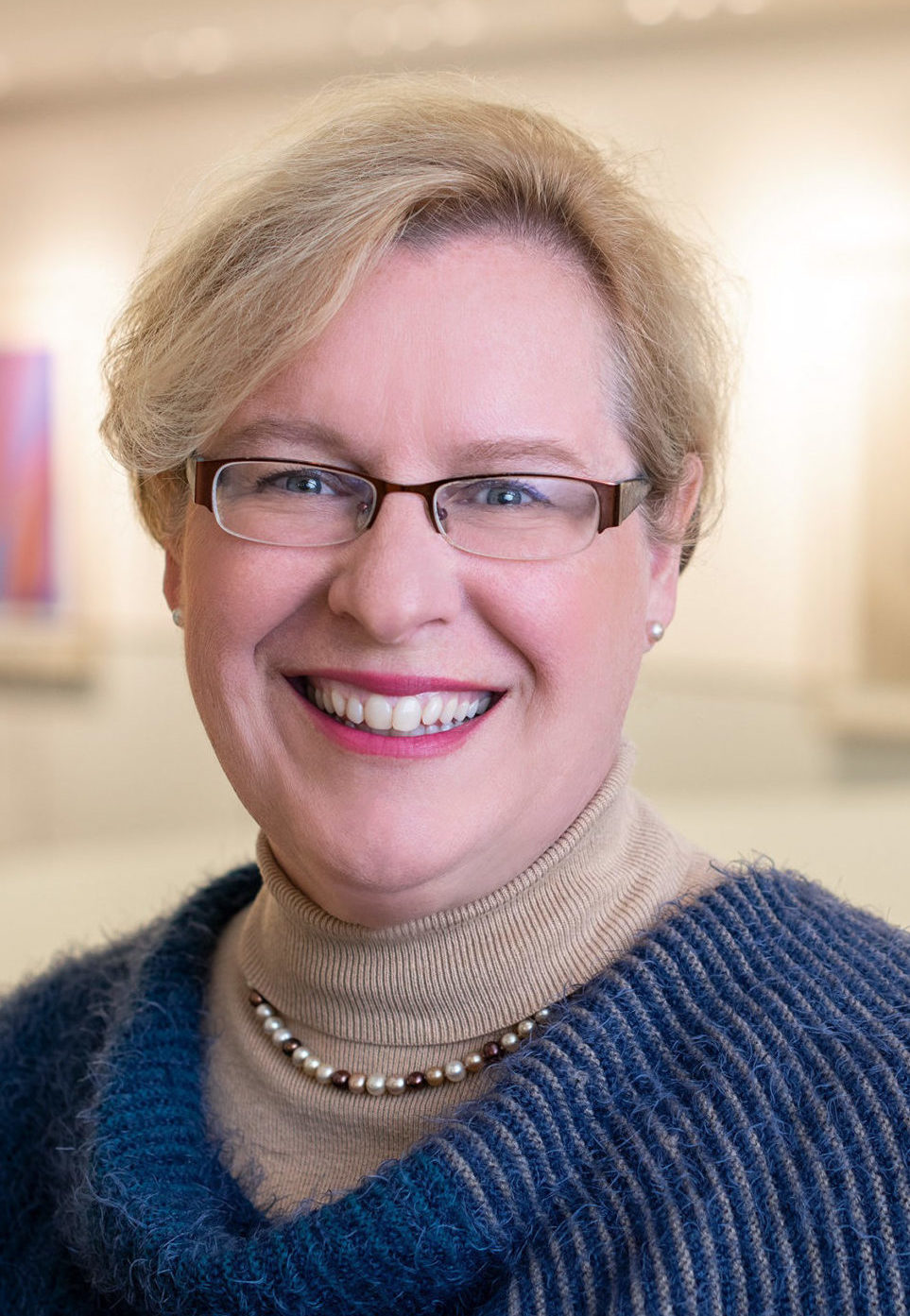 KENDA TOMES
KENDA TOMES
STINSON
Rainmakers are all about big numbers. And Kenda Tomes has ’em. Consider: Over the past decade, she and her team at Stinson have orchestrated financial-services transactions amounting to more than $150 billion. She chairs the firm’s Structured Finance-Securitization practice, which has executed 232 new-issuance transactions involving more than $193 billion in real-estate loan securities, and they have acted as lead counsel in nearly 120 transactions with $98 billion in servicing rights.
That’s a pretty solid book of work for someone who had to play catch-up in the legal realm after starting her career in accounting and finance. But the tools she needed to succeed at each level were put in place during her youth in Alma, Mich., where faith and family played foundational roles. “My family was definitely very traditional and hard-working; we were conservative fiscally, very responsible people, but very community-oriented,” says Tomes.
That background served her well when she headed off to college in Ann Arbor—despite her parents’ Michigan State pedigrees—and then to Chicago with a small CPA firm and later, Marshall Field’s in the cash/credit and internal audit units. Eventually, “I realized you cannot really excel in corporate America without a higher degree,” Tomes says. So she chose law school at Kent College and then, “my experience got the better of me, so I decided to go in to securities and corporate law,” she says.
She moved to Kansas City in 1996 to work for SNR, the firm later acquired by Dentons, and found the perfect place to start raising a family—affordable, no 90-minute commutes each way, “a small-town big city, the best of both worlds,” she says.
Over that generation, she has witnessed the shift in law-firm gender balances, as organizations do more to practice their diversity pre-aching. “When I started law school, the first year, 50 percent of the class was female, half the top 10 percent was female, the top graduate was female. But the women didn’t get the good jobs—a few guys got the good ones,” she says. Today, “over half our class of summer associates are females. That’s a very big focus at Stinson.”